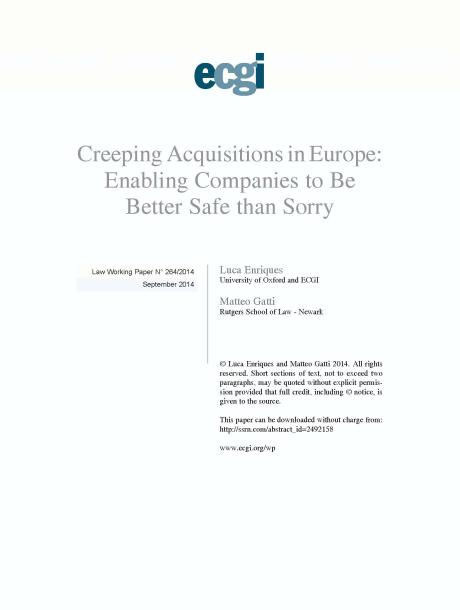
Creeping Acquisitions in Europe: Enabling Companies to Be Better Safe than Sorry
Abstract
Creeping acquisitions - grabs of a company?s de facto control without the launch of a
formal tender offer ? are an acquisition technique that presents many risks. Not only can stock prices be negatively affected in the short term (after the acquirer is satisfied by the stake it accumulates, the stock price is likely to drop below pre-acquisition values and the remaining shareholders are stuck with minority shares), but such acquisitions can also have long ranging consequences for the market for corporate control (too many acquisitions by suboptimal acquirers, as well as permanent loss of a company?s contestability status and therefore of any prospects to obtain a control premium), as well as in the governance of a company (de facto control can lead to the extraction of higher private benefits of control). Notwithstanding all such risks, EU corporate and M&A laws largely fail to address the
issue, both at the European level and in individual member states. As a result, European public companies can easily become the target of a creeping acquisition, whereas poison pills and other defensive mechanisms have shielded U.S. companies quite effectively. This paper argues that a legislative overhaul of current regimes - especially of the mandatory bid system - to address creeping acquisitions may well be overreaching given the drawbacks of one-size-fits-all solutions and the risk of shutting down the market for corporate control or clamping down hedge fund activism. Instead, this paper recommends a lift on existing limitations to a company?s freedom to determine its preferred level of openness to creeping acquisitions (and takeovers more generally). European legislation should provide an optional regime whereby companies can select effective arrangements to thwart or limit creeping acquisitions.







